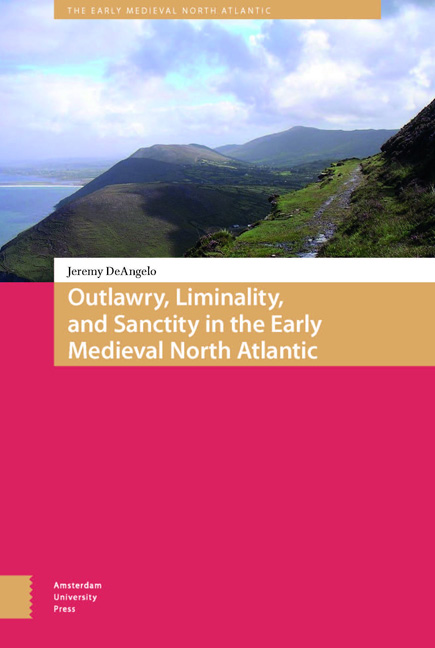Book contents
- Frontmatter
- Dedication
- Contents
- Acknowledgements
- Introduction: The Hermit and the Outlaw
- 1 Outlawry and Liminality in the North Atlantic
- 2 Imitating Exile in Early Medieval Ireland
- 3 Lessons of Conduct in Anglo-Saxon England
- 4 The Transgressive Hero
- 5 Cultural Exchange at the Boundaries of the Far North
- 6 Transgression in Transition after the Norman Conquest
- Bibliography
- Index
6 - Transgression in Transition after the Norman Conquest
Published online by Cambridge University Press: 16 February 2021
- Frontmatter
- Dedication
- Contents
- Acknowledgements
- Introduction: The Hermit and the Outlaw
- 1 Outlawry and Liminality in the North Atlantic
- 2 Imitating Exile in Early Medieval Ireland
- 3 Lessons of Conduct in Anglo-Saxon England
- 4 The Transgressive Hero
- 5 Cultural Exchange at the Boundaries of the Far North
- 6 Transgression in Transition after the Norman Conquest
- Bibliography
- Index
Summary
A New Outlaw for a New Time
According to the twelfth-century Gesta Herwardi, the outlaw Hereward the Wake was driven from England before the Normans arrived to conquer it. He must have known about the invasion, but its effects on the Anglo-Saxon people do not hit home for him until he returns and realizes its dire consequences for his own family. The foreigners had ransacked his lands, roughed up his widowed mother, and when Hereward's younger brother dared to defend her, they killed him and placed his head upon a pike. Hereward is forced to enter his ancestral house incognito, removing his brother's head before facing what was inside. There he finds the Normans feasting and drinking in celebration of their crime. There is also an entertainer, who demands a piece of the spoils for his fee, but one of the locals declares that if Hereward were there, the Normans would never be able to lay claim to the plunder. The leader sneers at this, slanders Hereward's reputation and concludes, ‘Nam crucis patibulo afficeretur, nisi ex fuga suae saluti provideret, in nulla terra nisi trans Alpes ausus habitare’ (‘He may very well have been hung on the joint of a cross, unless he safeguarded his health through flight, undertaking to live on the other side of the Alps’). At this point Hereward steps out of the shadows and proves himself to be terrifyingly present, killing them all.
The Gesta Herwardi is but one of several twelfth-century works which feature the exploits of Hereward the Wake. Stories such as these demonstrate that the transgressive power of the outlaw in the North Atlantic persisted into the High Middle Ages. Unmoored on account of his outlawry, Hereward has a location as unstable as any other part of his liminal identity. He could be abroad, or he could be only yards away. His ability to cross borders so easily symbolizes his unpredictability as an opponent, and with this declaration of his presence back in England, he begins his role as a local resistance leader in the East Anglian fens. This is the same region where centuries before both Guthlac and Athelbald employed the mutability of border existence to their advantage, and Hereward displays the same ability as well, using his facility with the region to frustrate his opponents, upend expectations and connect peoples and places which previously held no association.
- Type
- Chapter
- Information
- Publisher: Amsterdam University PressPrint publication year: 2018



